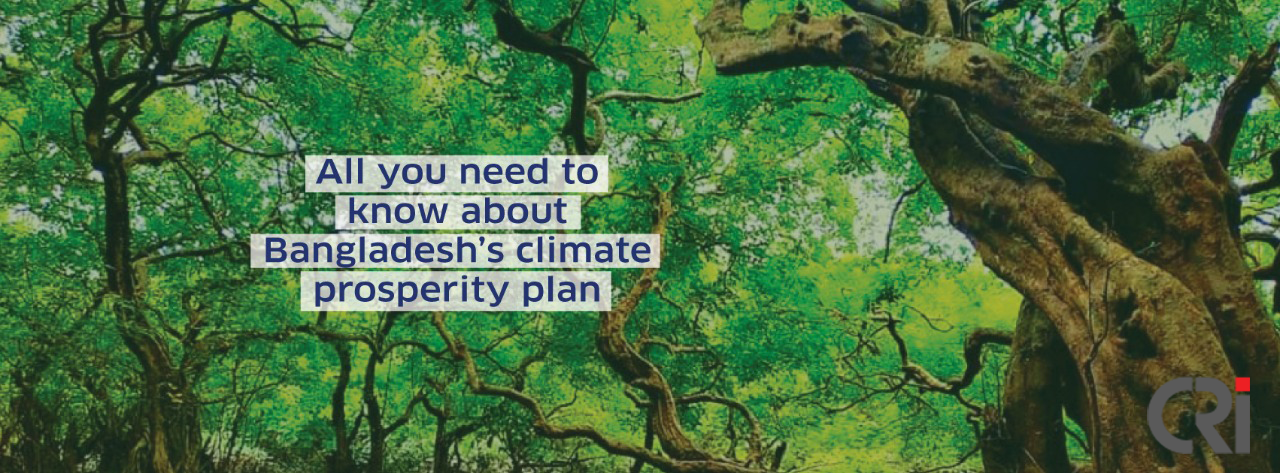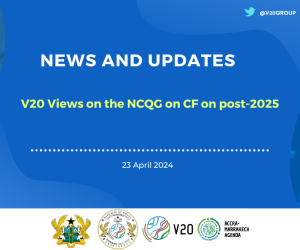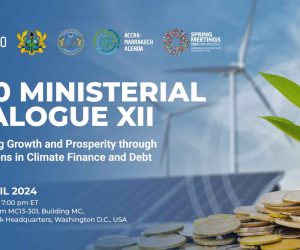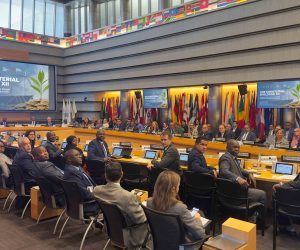
All you need to know about Bangladesh’s climate prosperity plan
November 1, 2021
Originally featured on: Centre for Research and Information (CRI)
Bangladesh has an excellent track record in climate resilience. Climate vulnerabilities has made Bangladeshi policymakers align the climate actions with national development policies. The country’s climate action is reflected in its policies, development strategies and diplomatic charm-offensive.
Bangladesh’s Prime Minister Sheikh Hasina took the lead in climate diplomacy at the international level. Hasina is serving as the chair of Climate Vulnerable Forum (CVF) for her second term. In her first term as the CVF Chair, she initiated a discussion amongst the member countries to shift the prevailing narrative of the group from stressing their vulnerability to making themselves climate resilient.
She moved forward to initiate the climate change narrative from resilience to prosperity. She also declared that Bangladesh would prepare the first climate prosperity plan (CPP) to set an example for other vulnerable countries to adopt a similar plan. Hence, world’s first CPP was prepared.
Bangladesh’s CPP was named Mujib Climate Prosperity Plan (MCPP), dedicated to the country founding father Sheikh Mujibur Rahman. Under MCPP, the country will enhance resilience, grow the economy, create jobs and expand opportunities, using action on climate change as the catalyst.
Under the MCPP, Bangladesh intends to obtain 30% of energy from renewables by 2030. The CVF countries are now reviewing Bangladesh’s plan as a blueprint for their own CPP.
MCPP inculcates measures supporting robust delivery of the SDGs and exploring green opportunities. The plan has a strategic investment framework to mobilize finance for renewable energy and climate resilience activities.
5 themes of Mujib Climate Prosperity Plan
Theme 1
MCPP will make a bridge the existing policies to supplement and accelerate them. The existing policy framework consists of:
- National Adaptation Plan (underway)
- National Adaptation Program of Action-2009
- Bangladesh Climate Change Strategy and Action Plan-2009
- Climate Change Trust Fund Act-2010
- Climate Change Trust Fund-2010
- Bangladesh Delta Plan 2100
- Climate Fiscal Framework, for Climate Fiscal Policy-making
- 8th Five Year Plans
- Country Investment Plan for Environment, Forestry and Climate Change 2020-2025
- Perspective Plan 2021-2041
- Forest Investment Plan 2017-2022
- Coastal Embankment Improvement Project
- Climate Resilience Program
- Climate Investment Funds
Theme 2
MCPP would enable Bangladesh to advance technological and economic heads. This will be done on a five-plus-five year (2021-2025, + 2026-2030) format, where the first five years (2021-2025) will be to lay the foundations for doing something new, and the second five years (2026-2030) will be dedicated to investments.
The first five years will be used to explore the offshore wind energy profile and develop the feasibility of the range, while the second five years will be for bringing the millions of dollars of investment, looking from global private-sector investors.
Theme 3
MCPP would construct strategic “Mujib Energy Hubs” to ensure the reconversion sources of unclean-energy such as fossil fuel power plants to high-tech green hydrogen production facilities. This will reinforce power grid stability, ensure the up-skills of workers, and allow energy sector to capitalize on high-valued exporting products in the form of green hydrogen.
Theme 4
MCPP would pursue global green investment funds for domestic green energy development programs. The plan is also to enhance the capabilities of public-private financial sector, depending on own finances; and also, the intellectual inputs and technical support.
Theme 5
MCPP would enhance capacity building of the youths, in order to transform them into technical professionals, not for job seekers. This particular investment does not really need extra funding, but it does require a major shift from the existing education system. The paradigm-shift will focus on quality instead of quantity.
Key initiatives under Mujib Climate Prosperity Plan
- Energy storage infrastructure development
- Power grid modernization
- An established carbon market regime
- Climate-resilient and nature-based agriculture and fisheries development
- Financial protection for Micro, Small and Medium Enterprises
- Environmentally friendly transportation
- Climate-resilient well-being initiatives
- An accelerated digital revolution
Realizing Bangladesh’s international commitments
The MCPP aims to uplift Bangladesh to reach middle-income status faster, which means graduating from LDC status and an end to reliance on the development partners. As a result, the plan would expedite the realization of Paris climate goals, explore the possibilities of new pathways for socio-economic development, and create more green opportunities to achieve national targets before deadlines. Bangladesh can implement this plan independent of other countries, although international climate finance would speed up the process.





